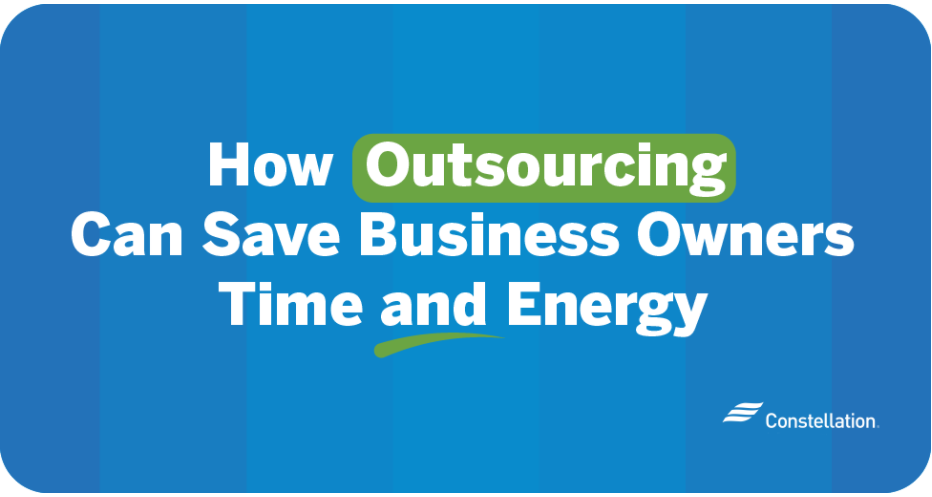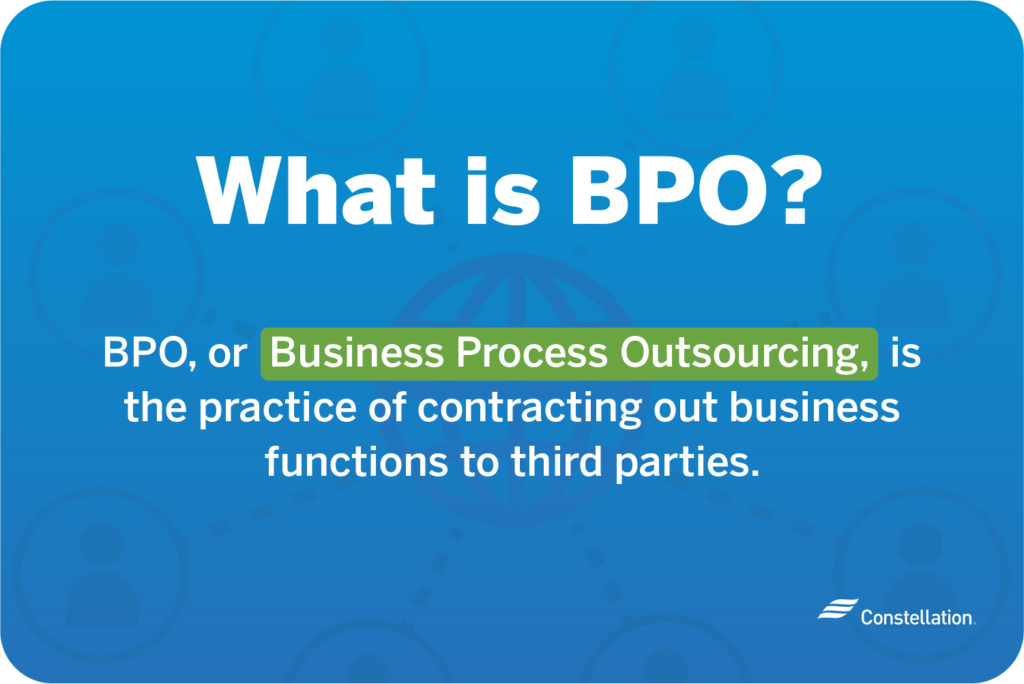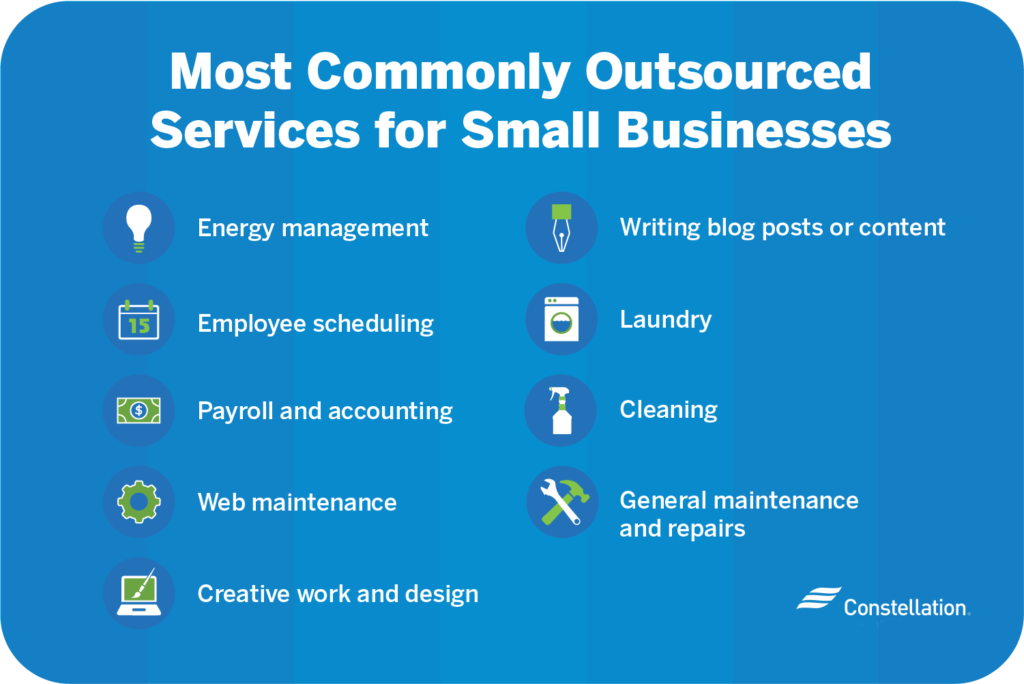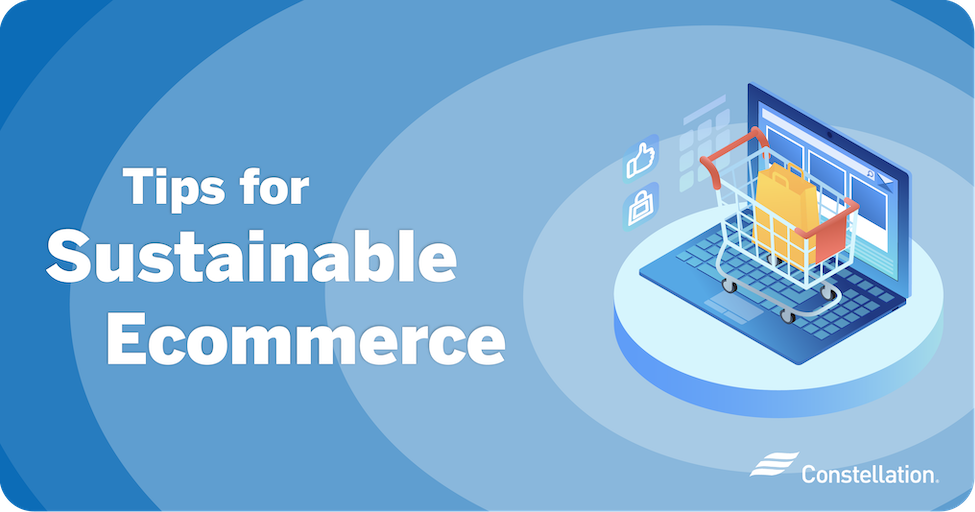
- Category:
Small Business Energy Savings -
Last updated:
April 16, 2025
How Outsourcing Business Processes Can Save Owners Time and Energy
The internet has revolutionized how small businesses operate: A manufacturing service in Utah or Mumbai can now reach clients across the country or even across the globe. Simultaneously, freelance work has exploded. The Freelancers Union estimates that nearly 57 million Americans work freelance, which is almost 40% of the workforce.
Add to that number the millions of people working freelance or contingent jobs worldwide, and it’s clear why business owners would be interested in how this enormous segment of the workforce could be harnessed, especially with an eye toward the potential economic benefits of outsourcing for small businesses.
Why do small businesses outsource, and what is BPO? In this article, we’ll explore the advantages of outsourcing and describe the most commonly outsourced services.
What is BPO?
“BPO” is short for “business process outsourcing,” the practice of contracting out business functions to third parties. The most commonly outsourced services include payroll, accounting, human resources, customer relations, maintenance and creative services.
Small businesses outsource functions for any number of reasons, including increased productivity, cost-efficiency, speed and the ability to access skills the business lacks. Small-business outsourcing also brings with it certain challenges, including the logistics of working with contractors in different time zones, potential communication problems and the loss of direct control over services.

Knowing when to outsource: Costs vs. benefits
Deciding whether to outsource comes down to a cost-benefit analysis, and it’s here that the economic benefits of outsourcing for small businesses become apparent. Small-business owners need to set a price on their own time and compare that to how much time and money potentially outsourced tasks consume.
For instance, if a small-business owner determines her time is worth $80 an hour, paying an outside contractor $25 an hour to complete busywork frees up the business owner’s time, allowing her to focus on critical tasks with higher returns.
Most commonly outsourced services for small businesses

The most commonly outsourced services for small businesses are those contracted to specialists who can complete tasks more quickly and more efficiently than in-house staff, or those who provide services in-house staff are not qualified to complete. Accounting, human resources and repetitive tasks such as janitorial services are often outsourced.
Outsourcing has the added benefit of saving energy. When tasks are performed out of office, the business owner saves on energy used for lighting and running equipment, including energy needed to get to and from the office and the cost of in-house personnel’s unconscious (but still costly) energy-wasting habits, such as leaving lights on or computers plugged in overnight.
1. Energy management
Managing energy is a daunting task for many businesses, including the wholesale and manufacturing industries. Small-business owners can outsource energy management to third-party experts, or they can choose to automate energy management with an energy monitoring system.
2. Employee scheduling
Scheduling large numbers of employees is a time-consuming process. Business owners who outsource to specialized scheduling teams and software applications can receive efficient schedules that make the most of costly work hours.
3. Payroll and accounting services
Hiring a dedicated employee to handle payroll is an expensive proposition for many small businesses. Outsourcing payroll and accounting services can be more cost-effective than paying for in-house payroll processing.
4. Web maintenance
Having an online presence is a business requirement, but few small businesses have the technical expertise needed to produce and maintain a high-quality website. Instead, outsource web maintenance to experts who can ensure your webpage meets industry standards. In addition to the return on investment a quality website brings, you’ll save on energy consumed by computers or laptops during website maintenance.
5. Creative work and design
Like web maintenance, creative work and design are rarely produced in-house by small businesses because they can’t justify the expense of hiring a full-time employee to perform such intermittent tasks. Even if you have an employee with the right training, modern design programs are expensive and consume large portions of a computer’s resources when running.
Outsourcing your occasional creative needs gives you access to a world of professionals who understand key design concepts and are adept at the style and standards of your industry.
6. Writing blog posts or content
Unless you do it for a living, writing can be a time-consuming, frustrating process. A professional writer can quickly craft a well-written, thoroughly edited and cleanly formatted piece of content. Any outsourcing expenses are more than made up for in the work hours and computer energy saved — and the product is likely to be more polished than what a nonexpert could produce.
7. Laundry
Certain industries produce large amounts of laundry. Food service often requires employees to wear uniforms, for example. Restaurants may use cloth tablecloths and napkins, and other industries require rags for cleaning. Rather than purchasing a washing machine to do laundry in-house, you can save time, energy and water by outsourcing to local laundry services, which have the industrial-size equipment needed to wash laundry much more efficiently.
8. Cleaning
When your employees are at work, you want them focused on tasks that drive productivity and profit. A clean work environment is important, of course, but do you want your employees going off task to keep things clean? Outsource to a company that specializes in cleaning and janitorial services. You’ll have a clean workplace, and your staff can focus on important tasks.
What’s more, the equipment used by such cleaning companies tends to be more energy-efficient than anything in your cleaning closet.
9. General maintenance and repairs
If your business relies on specialized machinery, it’s best to hire professionals for repair work and general maintenance. This holds true for your HVAC system: Professionals can safely work with complicated equipment and ensure it runs smoothly, maximizing its energy efficiency.
10. Outsource your weaknesses — or anything you don’t enjoy!
The economic benefits of outsourcing aren’t the only reason to contract out work to third parties. Sometimes it’s necessary to outsource tasks you’re weak at or lack the equipment to successfully complete. It’s also perfectly acceptable to outsource tasks you don’t enjoy — why struggle with payroll, for example, when you can hire an accountant?
Outsourcing is no longer an option confined to large corporations — even the smallest businesses can benefit from contracting out some tasks. So why do small businesses outsource? Because doing so conserves energy, saves money and frees you to focus on what you’re good at, thus maximizing efficiency and productivity.




